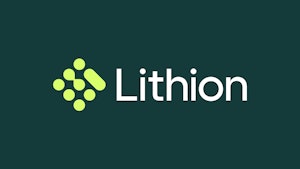INFINITE BATTERY RECYCLING: QUEBEC'S SOLUTION
Date
17.12.2024
Category
News

INFINITE BATTERY RECYCLING: QUEBEC'S SOLUTION
At a time when the environmental footprint of electric car manufacturing is causing controversy here and elsewhere, a Quebec firm has developed THE solution to infinite recycling of lithium-ion batteries... which promises to eliminate the last remaining objections to the electrification of transport!
The new hydrometallurgical process patented by Recyclage Lithion enables 95% of the components to be recycled and reincorporated in the manufacture of other batteries. What a circular economy!
This ambitious project is supported by a consortium of
- Seneca : project ideator, process designer and pilot plant builder;
- Le Centre d’études des procédés chimiques du Québec du Collège de Maisonneuve (CEPROCQ) : Lithion's "lab". Seneca's engineers carry out their chemical manipulations here;
- Le Centre d’excellence en électrification des transports et stockage d’énergie (CEETSE) : Hydro-Québec technologies protected by 800 patents are marketed. CEETSE is responsible for qualifying Lithion products and validating results.
- Appel à Recycler : Canada's largest battery recycling program. They will provide the raw material for the pilot plant, the batteries to be recycled.
According to Benoit Couture, President of Seneca and Recyclage Lithion, recycling processes for lithium-ion batteries have until now been aimed at solving a waste management problem, to reduce the volume and hazardousness of this bulky waste. Creating value seemed out of reach.
That was before Seneca entered the field...
"Our initial objectives were to recover battery materials with minimal impact on the environment, as well as being cost-effective... in other words, a process that wouldn't require eco-fees or subsidies," asserts Mr. Couture.
Starting with a blank page, Seneca's experts set themselves the challenge of squaring the circle with uncompromising specifications... and they succeeded!
- Handles all types of lithium-ion batteries;
- Safely handles charged batteries;
- Generates no liquid effluent;
- Requires few reagents, which reduces environmental impact;
- Revalorizes 95% of battery components in an environmentally-friendly and economically viable way;
According to chemical process engineer Charles Gagné-Bourque, the purified and recycled materials have a "battery grade" purity that is perfectly usable by manufacturers:
- Lithium carbonate
- Cobalt
- Graphite
- Nickel hydroxide
- Manganese oxide
Plastics, iron, copper and aluminum are separated for recycling in traditional channels.
Thanks to Recyclage Lithion, it will now be possible to realize the dream of a battery made entirely from recycled materials!
In operation from 2020
The Recyclage Lithion pilot plant is a $12 million project. It's a project so promising that Sustainable Development Technology Canada (SDTC) has invested $3.8 million. The pilot plant will be located in the Montreal area. Construction will last one year, and the plant will be in operation for 2 years, the time needed to perfect and validate industrial operations and qualify products for potential customers. The pilot plant will have the capacity to process up to 200 tonnes of batteries per year, supplied by Appel à Recycler.
First-generation plant
A first-generation commercial plant should then be set up in Quebec, with a capacity to process almost 2,000 tonnes per year, followed by a roll-out of commercial plants with a capacity of 10,000 tonnes per year! According to Mr. Couture, such recycling plants should ideally be located close to the automotive market, to reduce the need to transport and handle batteries. He estimates that it would be reasonable to envisage a dozen plants in Europe and North America. The process will undoubtedly also be of interest to other markets, particularly Asia.
Recyclage Lithion is expected to generate substantial revenues from the intellectual property rights associated with its already patented process, which will have a positive impact on the Quebec economy.
Recyclage Lithion plans to build Quebec's first 10,000-ton-per-year plant, in line with the Quebec government's electrification objectives. This plant will serve the regional market, which could extend to Eastern Canada and beyond.
The author's opinion
The prospect of almost complete battery life cycles for electric cars is very good news, and will give a boost to the electrification of transport. Indeed, the argument of pressure on metal resources becomes less of a concern. Similarly, this closure of the material life cycle could reduce speculation on metals, which in turn could lower the price of electric vehicles and accelerate their deployment.
It's particularly exciting that this technology is being developed in Quebec, which is increasingly positioning itself as a major player in the electrification of transport. We hope that the Quebec and Canadian governments will ensure the deployment of this circular economy sector here in Quebec, with a massive transition to electric cars.
After recycling, perhaps we could develop a 100% Quebec battery manufacturing chain, or even exemplary batteries with high recycled content. This would make a lot of sense, since the main environmental impact of battery manufacture comes from the source of the electrical energy used. Quebec would therefore be the ideal place to manufacture batteries with the lowest possible ecological footprint.
Source: AVEQ (https://www.aveq.ca/actualiteacutes/recyclage-des-batteries-a-linfini-la-solution-est-quebecoise)